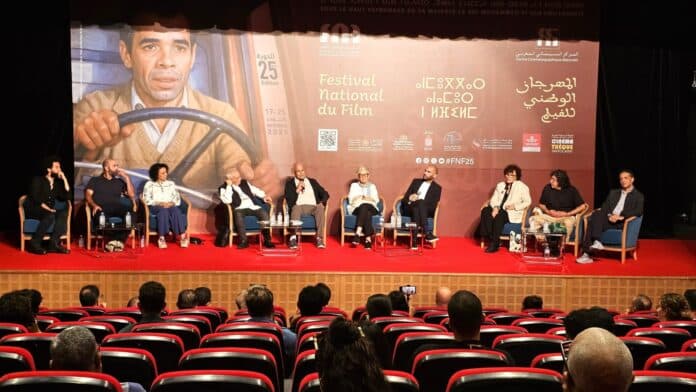Every year, the Moroccan Cinematographic Center organizes the National Film Festival in Tangier, an event intended to discuss & celebrate the best of Moroccan cinema. Yet once again this year, not a single Amazigh director or producer was invited, raising serious concerns about fair representation and equal opportunity.
Despite reportedly sending over 600 invitations, the absence of filmmakers from the Rif, the Atlas, and Souss regions raises serious questions about whether Amazigh culture is truly recognized and valued in Morocco!?
On his Facebook page, Rifian filmmaker Aksel Rifman expressed deep frustration over the ongoing marginalization of Amazigh filmmakers in Morocco, highlighting what he described as “structural inequality” that is clearly reflected in the Tangier festival organized by the Moroccan Cinematographic Center.
“Film Festivals like these provide a crucial opportunity for learning, networking, and developing skills as well as an opportunity to meet potential film funders. Excluding Amazigh filmmakers from these opportunities not only limit our potentials but also restricts the diversity of Moroccan cinema. The same faces and names are frequently featured at the festival, which frequently treats attendees as “festival tourists” with free benefits while marginalizing committed filmmakers who work to advance their culture and film.” Aksel added.
Rifian filmmaker Mohamed Bouzagou expressed his frustration over the ongoing marginalization of Amazigh filmmakers, stating:
“The continuous exclusion of Amazigh filmmakers at the Tangier Film Festival silences our voices and pushes our native culture on the sidelines. Years of hard work and creativity are ignored, leaving us outside the game and away from any recognition. Enough is enough!”
“This is not a call for charity, but a call for justice and inclusion. Initiatives like these are essential to address a long-standing imbalance,” another Amazigh filmmaker added.
In an issued statement, the Union of Moroccan film makers voiced strong concern and disappointment over what it described as the “systematic exclusion” of Amazigh cinema at the National Film Festival and in other initiatives run by the Moroccan Cinematographic Center, stressing that “a national festival that fails to include Amazigh programming and representation cannot truly be considered inclusive.”
The issue, however, extends far beyond cinema. Amazigh artists and content creators continue to face marginalization across other cultural fields, including music, theater, literature, and even media production on national television where Amazigh content reportedly represents less than 2% of total programming.
Despite Tamazight’s recognition as an official language in Morocco’s constitution in 2011, its presence in public institutions, cultural programming, and official media remains very minimal and largely symbolic.
This ongoing imbalance highlight the urgent need for Morocco to fully enact Tamazight language law, not only in education and administrative forms, but across all cultural and artistic domains.
Achieving genuine national representation in Morocco requires granting the native Amazigh language and culture the recognition they rightfully deserve and ensuring that every citizen, from all regions and linguistic backgrounds, feels equally represented and no longer marginalized or overshadowed by another culture on the national stage…

